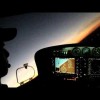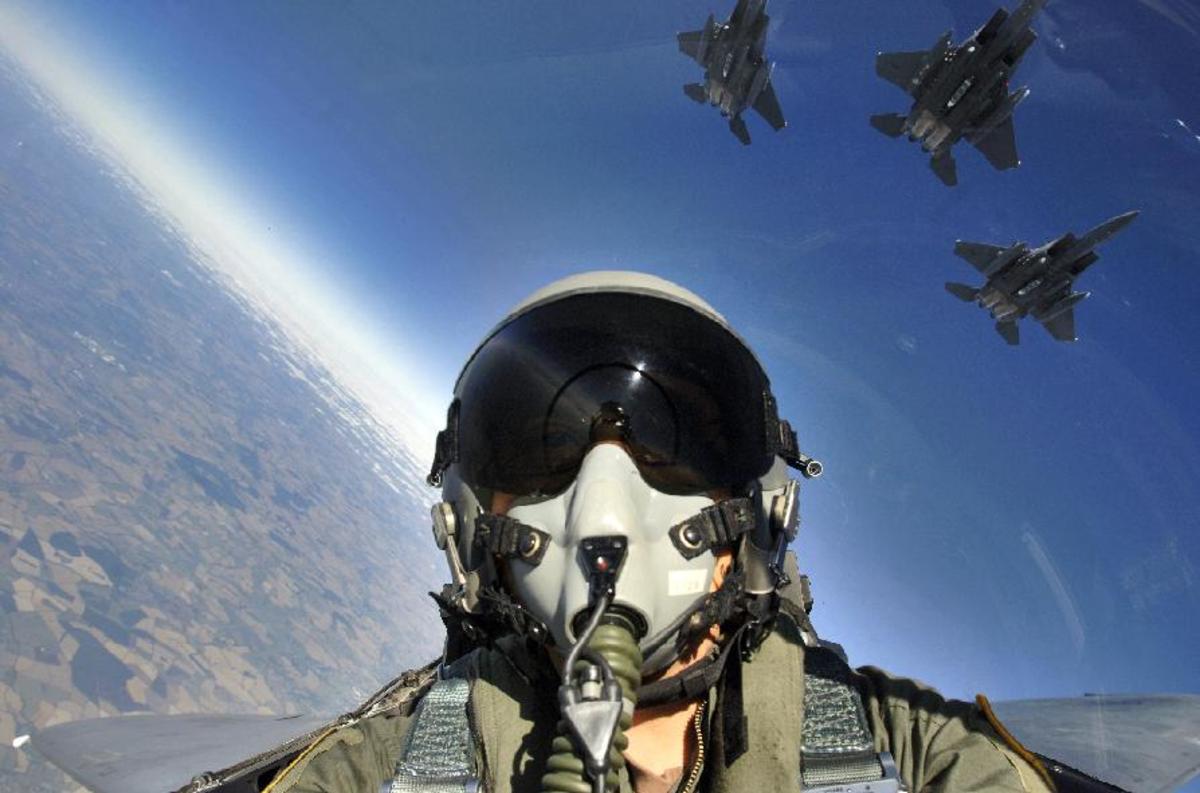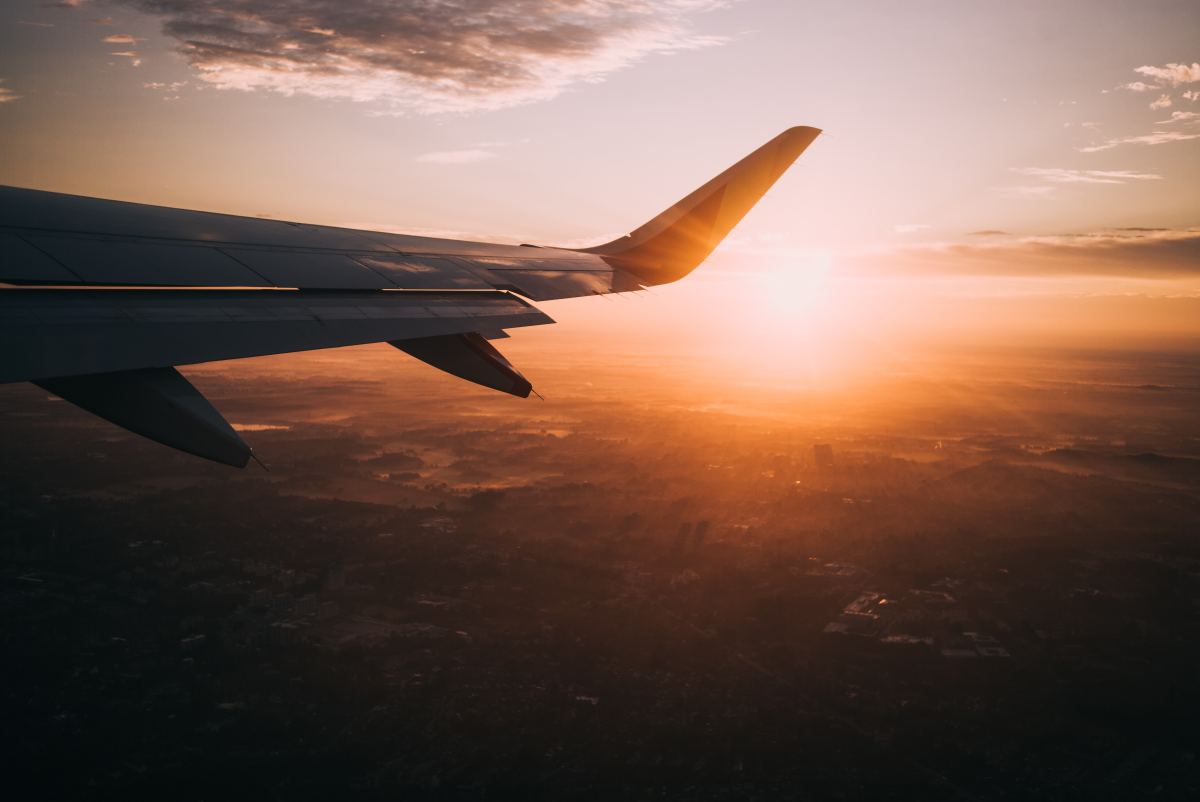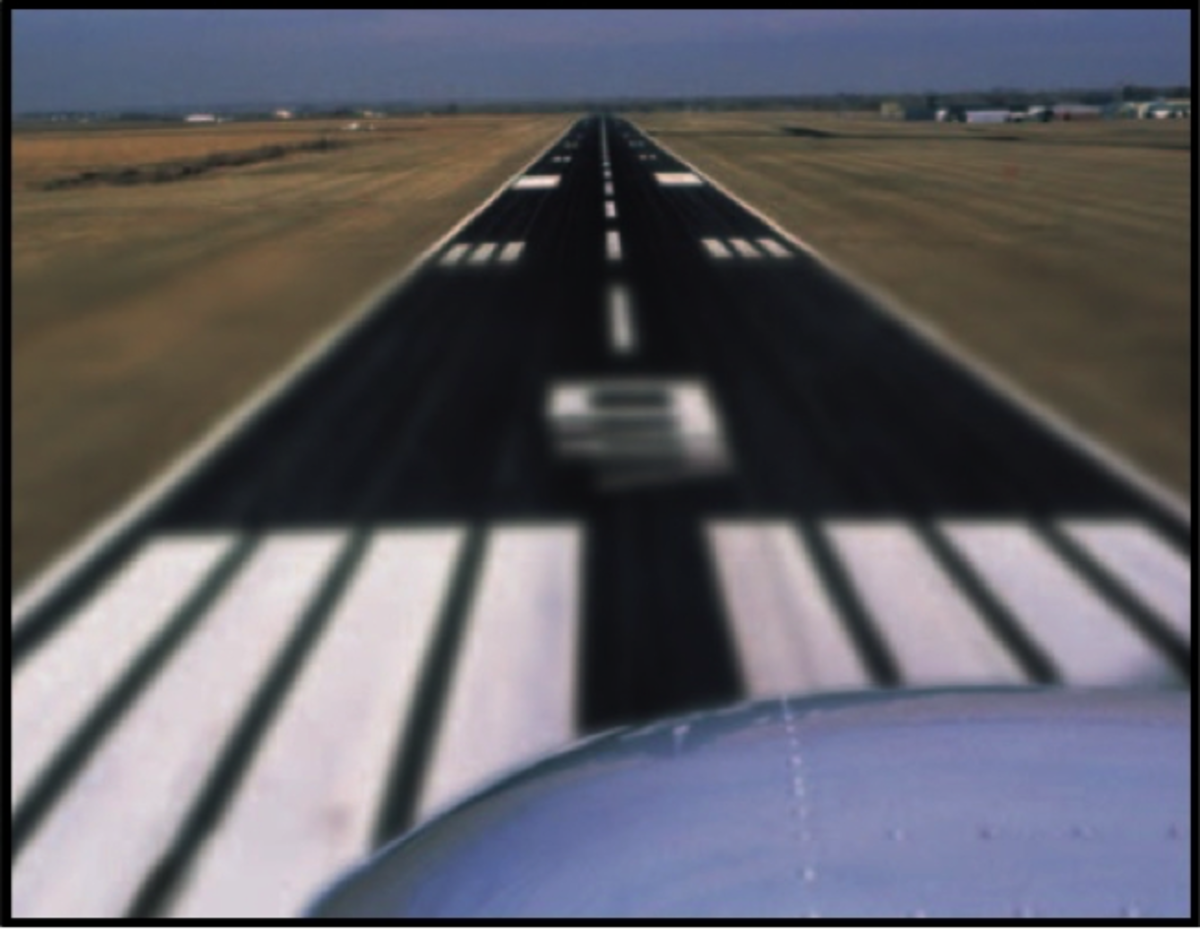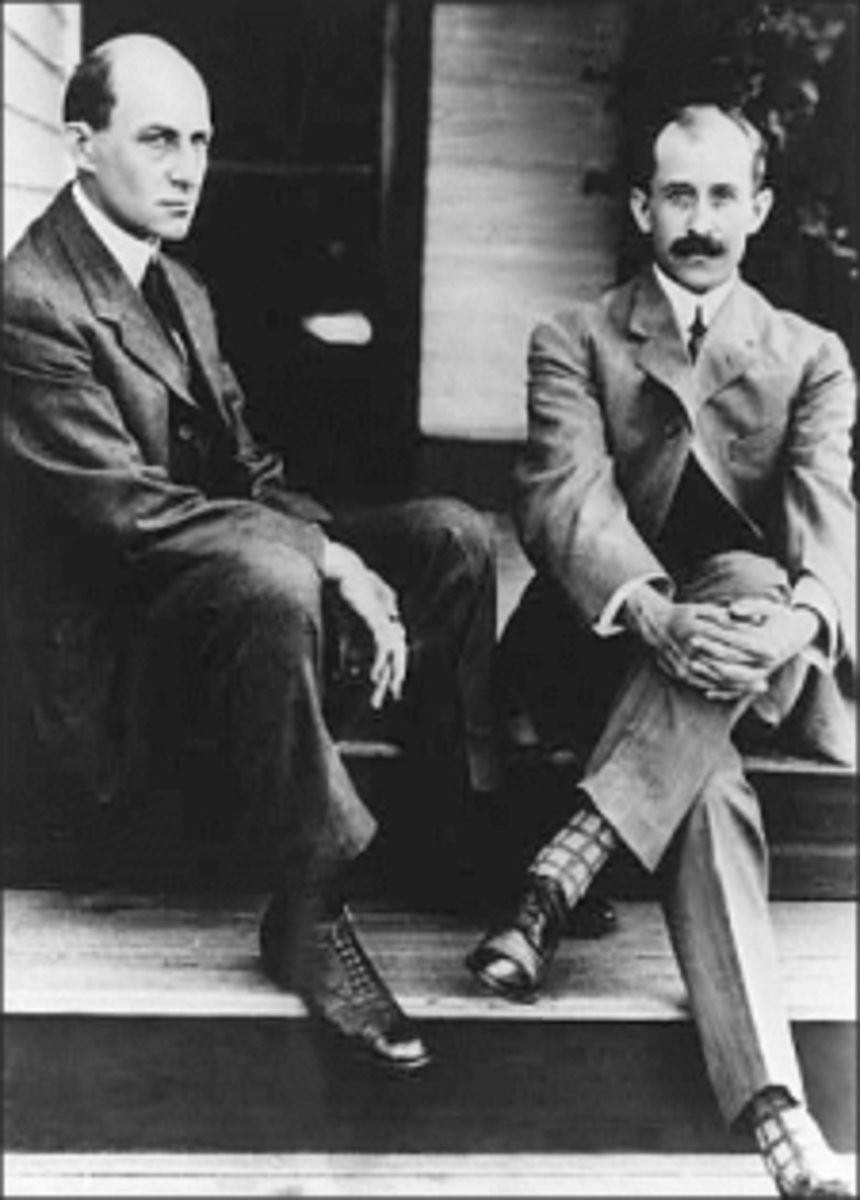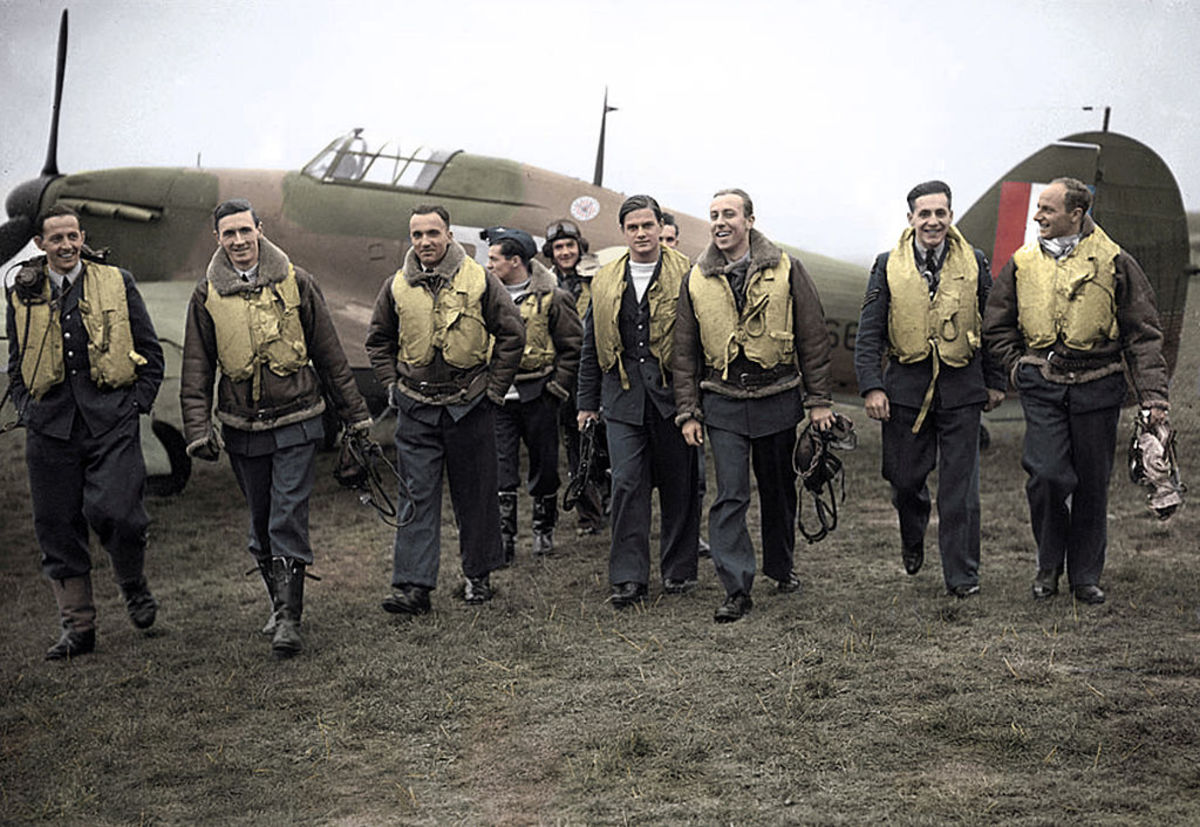Becoming a Pilot
Flying to Wichita, KS
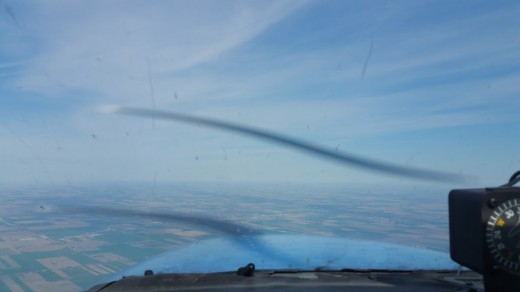
Determining your Flying Club and Instructor
One of the most overlooked steps of flying is choosing where and which club you want to fly with, and most importantly, who your instructor will be. When picking a school and associated flight instructor, you should ask yourself a few very important questions. This includes: What is it I want to get out of aviation? Do I want to fly for fun? Or maybe do I want to make this a career and become a commercial pilot? What is it I want to fly? Meaning do you want to become a light sport pilot, aerobatic, or just a regular pilot (if there was such a thing). Also, where will I be flying i.e. local or cross country? These are just some of the many questions you should answer before you start considering a flight school and instructor since each school will tailor to most of your unique needs and goals.
A huge factor to also to consider is if you are commited to training full time or part time; which has a definitive impact on cost, flight school, and even instructor. It is key to remember to learn at your pace and find a program that does not push you to just make money off of or have a flight instructor use you as a means to their end.
Also when considering a Flight school, know that there are two different types, meaning which part of the FARs or Federal Aviation Regulations under which they operate. These two types include part 61 and part 141.What makes the two different is how they are structured and how the FAA or Federal Aviation Administration holds them accountable. Part 141 schools must undergo a rigorous auditing process by the FAA and follow a detailed framework of classes taken in a specific order that cannot be changed. What this means to you is usually less time and money spent on obtaining a certificate but is not always the case. On the other hand, Part 61 schools allow much more freedom to a pilot and as long as the prerequisites are met, it does allow some classes to be changed around and allows more liberty to the flight instructor to set forth a training curriculum.
Picking the right flight instructor is a decision that you should give a lot of thought and is not an easy one either. Not only does your life depend on them at times, the ultimate skills and knowledge you will get from them will either make you a great pilot or dangerous one. Don't hesitate to do some research on your flight instructor and ask your fellow students and peers about them. Find out if they are a Gold Seal flight instructor, what are there aspirations, and most importantly what is their schedule availability and does it meet your needs. Knowing these things will not only make you a better pilot, it will help you form a bond when you are undertaking one of the most important, exhilarating skills you will ever learn.
One of the best ways to get acquainted with your flight instructor is take a lesson from them and after have a debriefing session with them. During your flight lesson, after the adrenaline wears off, gauge your instructor's personality and attitude. Maybe some questions to ask them are: How many hours do you have flying? How Many students do you have? What are your goals with me? It is also nice to get to know them on a personal level because this is someone you will be working very closely with in a crew environment. Knowing that your personality fits with theirs will make your training that much more fun and will also aid to you learning much better from someone you get along with. In my experience I have had many flight instructors and for me, the best are the ones not trying to build time, have already flown for the airlines, or even just love teaching and are not trying to just advance themselves but also progress you as well.
KAPA Centennial Flyers Aircraft
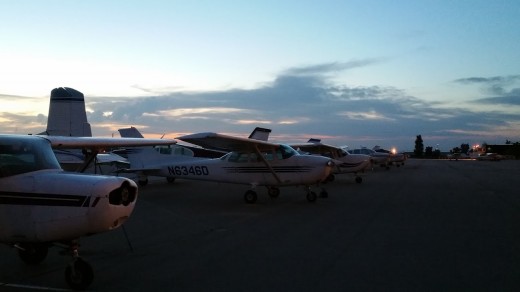
Ground School
First things first, one of the biggest keys to becoming a pilot is ground school. As the name suggests, ground school is accomplished outside of flying the airplane. This includes things like learning weather, how to navigate using dead reckoning or pilotage, knowing your FAR's, countless hours practicing communication on the intercoms, and even learning about your airplane. Ground school applies to every stage of your pilot certificate and progressively gets harder and more complex. Ground school can either be accomplished one of two ways. This includes going to school for it such as a program at a college, or even accomplished online with programs such as Jeppesen's pilot ground school packages. The other way is going over ground school a couple of hours before you fly with your instructor.
Before starting ground school it is wise to know what your capacity is for learning and how much you are going to dedicate to your ground school. The reason for this is it is best practice to do your ground school in parallel while you are flying. Everything you learn in ground school directly correlates to some action or function while you are flying. This will make learning to fly that more enjoyable and less stressful while learning to juggle all of the nuances that go along with flying an airplane. Before taking the leap, make sure to do your research and gauge your commitment level.
MSU Denver Flight Lab
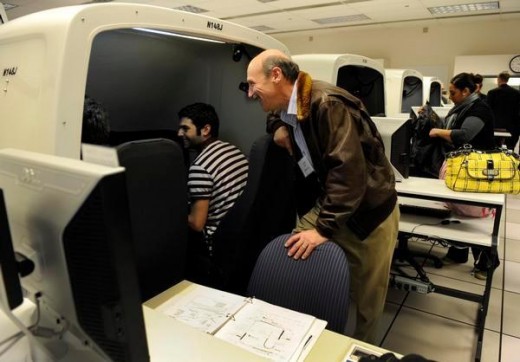
Picking an Airplane
The training airplane is where you practice in the air what you've learned on the ground. Whether it is a Cessna 172 or Diamond DA-40, it doesn't make a huge amount of difference on the training airplane. They are designed to be very forgiving and take a huge amount of abuse so don't worry about the bad landing. The thing to consider though is what is the level of maintenance on the airplane and what kind of instruments are in the plane. Electronic instruments are great but also make flying very easy. I always recommend learning what is known as steam gauges and then making your transition into an electronic cockpit.
Because trainers are flown many times a week and always hard, how your flight school maintains its aircraft fleet is utterly important. Open squawks on an airplane could limit you to VFR day or even ground the airplane all together. Flying an airplane that is considered not airworthy is not only extremely dangerous but also illegal. Asking questions about the maintenance of your aircraft and seeing the maintenance logbooks will not only keep you safe but also out of trouble. Remember, it is a pilot's responsibility to know everything pertaining to every flight. Do your due diligence and this will assure you are safe and you will have a great time.
Newest Frontier Airplane
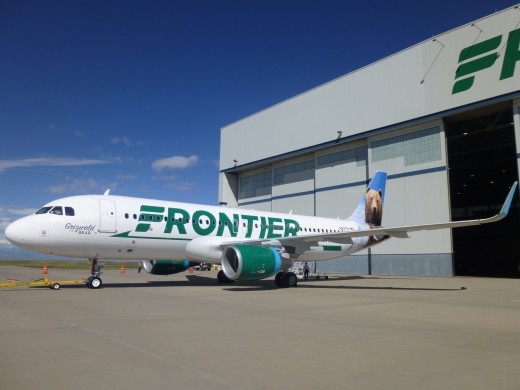
Cost
Compared with many of your hobbies or activities, learning to fly is most likely to be one of the most expensive ventures you will take on. One thing to keep in mind though when you are considering the cost is: Not only are you investing in one of the greatest feats in human history, a skill no one can ever take away from you, you are also investing in you. Remember you should never put a price on your hobbies or passion. Flying is also something that you will never be done learning. There is always something new to learn and the day you stop learning is the day you should decide to hang it up. Remember that your initial pilot training provides a concrete foundation for the rest of your flying career. It is necessary not to rush through it and get everything you can out of every moment of flying and ground school. Only you can determine if what you are getting out of your flight instructor and ground school is what you need.
When comparing costs and flight schools, make sure you're comparing the same things since schools will advertise the costs differently. Some flight schools will base their prices on the minimum FAA time requirements, such as 40 hours required for a private certificate. I have never known a pilot to accomplish getting their private pilot certificate in this 40 hours so plan on adding extra hours of flight time and instructor cost into account. Other schools will base their prices on a more realistic figure that's the average of what their students accomplish. I would plan on around 50 hours of flight time, instructor time, and whatever time of ground school you need to pass the FAA written exam. Remember everyone learns differently and at their own pace so just get an idea of what you think you will need and stick with it. Try and fly at least two times a week, otherwise your cost will be much higher and it is a lot harder to keep your skills sharp. In other words, get a good understanding of what an instructor thinks you will need and know your limits. There is no rush to get your private pilot certificate, instead just enjoy the time and every flight hour is just a drop in the big bucket when it comes to the grand scheme of things.
Just because someone finished their training right at 40 hours and for $5,000 does not make them a better pilot then someone who took 65 hours and paid $10,000. You also cannot compare yourself to Tim who is at 42 hours and is taking his check ride. Instead make sure you are confident with your skills and abilities and no matter what you paid, you will ultimately have self happiness and satisfaction learning a skill that very few have.
What actually makes planes fly
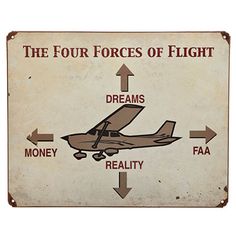
Check ride and FAA Written
Well the day has come and before you go take your check ride, you need to take an FAA written test on your ground school knowledge. Without this test, you will not be able to get your private pilot certificate. No need to panic though, there are many study resources on actual FAA test questions and your instructor will make sure you are ready. The test consists of 40 questions and has a 3 hour cap. Usually it takes about two and a half hours and costs about a 150 dollars. You will have ample enough time to answer all questions so don't rush. Upon completing the test, you need a 70% to pass and will be notified immediately after what score you received and what questions you missed.
After passing the FAA written test and go over what questions you missed with your instructor, the big day is here, your check ride. Remember to dress nice and just be yourself! Make sure you know the ground portion of what you learned in ground school because you will surely be tested on this before you go and fly. There are not many things that will fail you but there are some important things. Make sure you are not busting standards and making dangerous mistakes. You will be ready and your flight instructor will make sure of it. Just go up there confident in your skills and knowledge and you will be fine. On average plan for about 4 hours out of your day to take your check ride. After you pass your check ride you will have a debrief with your check airmen. If you do not pass you will be given a pink slip and will have to re test. If you are not ready you can always reschedule with no issues and this will not hurt you in anyway. Make sure to budget about 550 dollars for this venture. After it is all said and done, take a deep breath and celebrate! You are now joining a very small amount of people in the world that are now legally allow to burn holes in the sky.
Putting it all Together
Pulling everything we have learned together, becoming a pilot is well shall I say....tough. An honorable mention here is make sure to get an FAA medical. There are 3 different classes ranging from 1 though 3. All you need to fly is a third class but depending on what you want to do with your flying, you will need a first class to ultimately fly for the airlines.
Although it is tough and can be a very long and arduous process the gratitude and self fulfillment you obtain from a skill like this will be more then enough to fill you with a lifetime of happiness. No matter the cost or the long hours, or even the many bad landings you will have, looking back on all the great experiences will keep bringing you back for more and more. As Leonardo Da Vinci said, "For once you have tasted flight you will walk the earth with your eyes turned skywards, for there you have been and there you will long to return."
AOPA Departure from KAPA to KCOS
© 2016 Charles T Baumert
